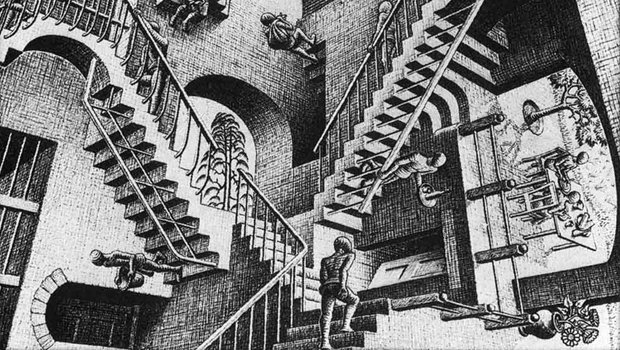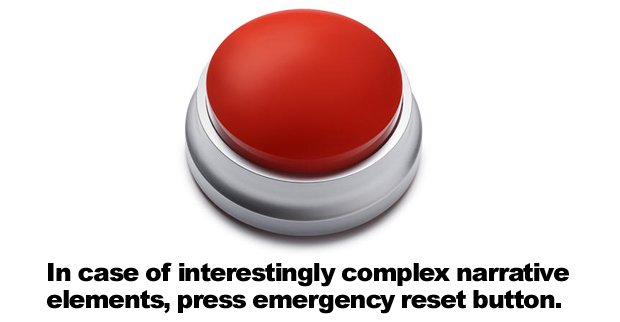Why Gears of War 3 is the Spider-Man 3 of video games
Gears of less-is-more
Retconned plotting for the sake of contrived convenience
The Gears story developed and expanded pretty well over the first two games. It got rather complex, but always in a satisfying way, and the questions and potential answers it threw up always played with the subtly ambiguous morality of the story and threatened to throw up some seriously gratifying twists and turns.
Were the Locust really the bad guys? Who really invaded who? Is Humanity settling the conflict or escalating it? What secret crimes have the surface-dwellers committed, and what is their true history with the ‘bad guys’?

Above: Ambiguity = exciting
All of these questions and subtexts have been thrown up rather deftly over the years. All of them are not-so deftly ignored by Gears 3, in favour of a great big simplistic lump of “Oh f*ck that shit. We’re the good guys and we’re gonna win!”
Adam Fenix’s much-teased secret history with the Locust Queen? “Yeah, I knew her 20 years before anyone else had heard of the Locust, but we don’t need to talk about that” The Locust Queen’s intriguingly human appearance? “Hey, she looks human. That’s intriguing. Ah f*ck it. Whatever” The moral ambiguity of both sides, and the question of who is really the aggressor? Laid on heavily and effectively throughout the course of the game, until Marcus stabs it away at the last minute with a cursory yelp of “Yeah, well f*ck you. We’re the good guys and we’re gonna win!”. And Dom’s knife. You know, the one that he was obviously going to use several hours ago.
It’s push-button resolution the like of which even a bad Doctor Who episode would balk at, and when you’re talking about three games’ relatively complex back-story and thematic sub-text, a simple attitude of ignoring it all at the end is pretty unforgivable. In fact it’s less push-button and more “walk-away-and-forget-any-of-it-ever happened”.

Gears 3 writer Karen Traviss has recently tried to explain things by playing the “Some things are best left implicit” card. And in principle I agree with her. Unanswered questions can be a hell of a stimulating thing to leave in the air, and can give a story life long after its prescribed ending. But they need to be the right questions, and they need to be left hanging with the right blend of intrigue and potential avenues of exploration. Simply white-washing over two previous games of narrative set-up does not achieve that.
Weekly digests, tales from the communities you love, and more
Also, that “Imulsion is actually now a different thing to what we thought it was and it’s alive and in everything and if I use this magic KILL ALL IMULSION machine it will all die and we will win” resolution is the most piss-poor, embarrassingly tidy plot-line wrap up I’ve seen in years. And when you factor in the rest of the story’s obsession with cheap, quick fixes, Traviss’ advocation of ambiguity seems all the more unconvincing.
Above: The ending. Stop worrying. Everything in the world is now okay! For some reason
So yeah, Gears of War 3 ignores or changes all kinds of stuff in order to get a pseudo-neat quick-fix ending. Spider-Man 3 changes Uncle Ben’s murderer to the Sandman in order to shoe-horn in some new artificial conflict and an overly-neat redemptive resolution. Both are massively dissatisfying.
So that’s Gears of War 3 for me. I enjoyed it. It was fun. Overall, I liked it. But I just couldn’t love it like I love the first two. In fact, it left me completely deflated. But am I just one puristic voice shouting in the darkness, or did you feel the same way? Let me know.
September 30, 2011



